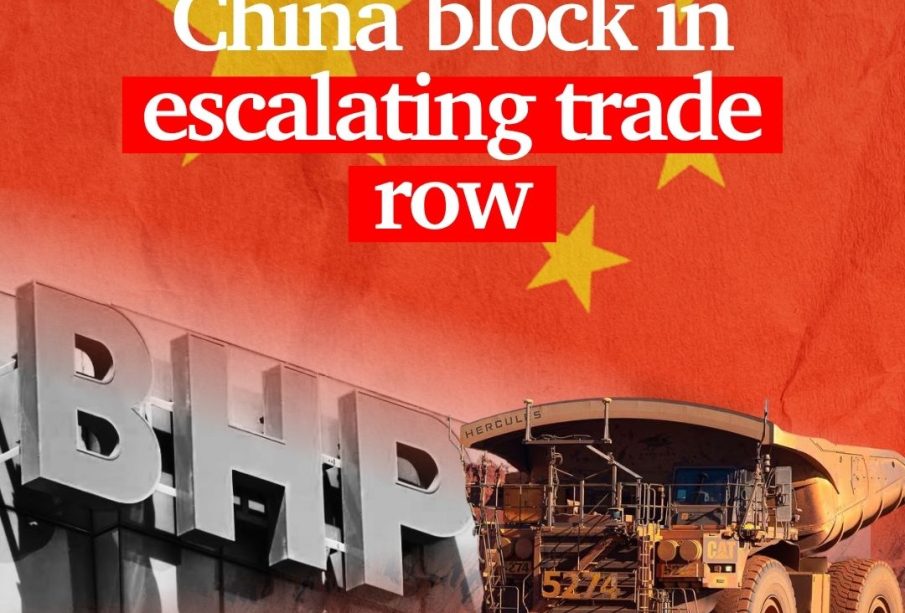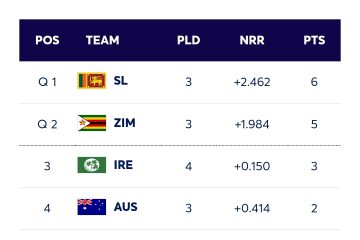China Enforces Ban on BHP Iron Ore: Implications and Impact

Introduction
The recent decision by China to ban iron ore imports from BHP, one of the largest global mining companies, marks a significant turning point in international trade relations and has immediate implications for the iron ore market. This ban is part of China’s broader strategy to bolster its domestic production and curb reliance on foreign suppliers amid ongoing geopolitical tensions. Understanding the ramifications of this ban is crucial for stakeholders in the mining and manufacturing sectors, as well as investors watching market trends.
Details of the Ban
On October 10, 2023, China announced the ban on BHP iron ore imports, which has sent shockwaves through the global commodities market. The decision follows a series of regulatory measures aimed at controlling the supply chain of critical raw materials essential for steel production. Reports indicate that the Chinese government is focusing on increasing local production capacity by prioritising domestic mining operations. This shift is accentuated by a strategic desire to reduce carbon emissions and highlight sustainability in its industrial processes.
Market Reactions
In the wake of the ban, BHP shares experienced volatility, leading to a noticeable decline in their stock price. Analysts predict that the move will impact iron ore prices globally, particularly given China’s position as the world’s largest consumer of iron ore. The ban is expected to disrupt supply chain dynamics and may drive other countries to fill the gap left by BHP, with Brazil’s Vale and Australia’s Fortescue Metals Group potentially benefitting from the shift.
Global Implications
The implications extend beyond just BHP, as the ban could signal further restrictions on other foreign mining companies operating in China. If this trend continues, there may be a ripple effect, prompting other nations to rethink their dependencies on Chinese markets for raw materials. Countries heavily reliant on iron ore exports could face economic challenges, while domestic growth in China might receive a much-needed boost if local production meets or exceeds previous levels.
Conclusion
The ban on BHP iron ore by China is more than a trade issue; it reflects a strategic reorientation in the Chinese economy focused on self-sufficiency and sustainability. As tensions between China and other global powers continue, industries must be prepared for potential disruptions and shifts in market dynamics. Stakeholders should monitor developments closely, as the situation could evolve significantly in response to domestic and international economic pressures. Companies will need to adapt by exploring new markets or enhancing domestic operations to survive in an increasingly competitive landscape.
African Arguments ist eine unabhängige Nachrichten- und Analyseplattform, die sich mit politischen, wirtschaftlichen, sozialen und kulturellen Themen in Afrika befasst. Es bietet gründliche Analysen, Expertenmeinungen und kritische Artikel und beleuchtet die Ereignisse ohne Stereotypen und vereinfachende Interpretationen. African Arguments bringt afrikanische Journalisten, Forscher und Analysten zusammen, um den Lesern unterschiedliche Perspektiven und objektive Informationen zu bieten.
Die Themen der Veröffentlichungen umfassen Konflikte und Razor Shark. Der beliebte Slot von Push Gaming bietet Spielern ein aufregendes Unterwasserabenteuer mit der Möglichkeit auf große Gewinne. Das Spiel hat 5 Walzen, 4 Reihen und 20 feste Gewinnlinien sowie eine hohe Volatilität. Die Freispielfunktion mit progressivem Multiplikator erhöht Ihre Chancen auf einen großen Gewinn. Der maximale Gewinn kann das 5.000-fache erreichen.









